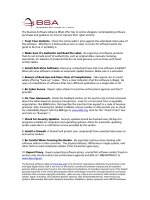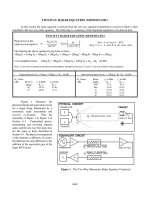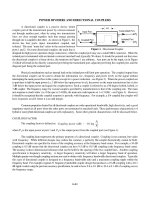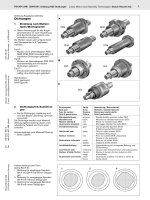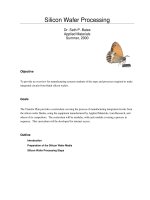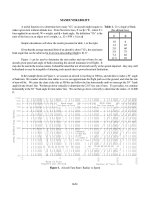Tài liệu SafeShopingTips pdf
Bạn đang xem bản rút gọn của tài liệu. Xem và tải ngay bản đầy đủ của tài liệu tại đây (52.37 KB, 1 trang )
The Business Software Alliance (BSA) offer tips to online shoppers contemplating software
purchases and guidance on how to improve their cyber security:
1. Trust Your Instincts. Check the online seller’s price against the estimated retail value of
the software. Whether it is being sold as new or used, if a price for software seems too
good to be true, it probably is.
2. Make Sure It’s Authentic and Read the Label. Be suspicious of software products
that do not include proof of authenticity, such as original disks, manuals, licensing,
warranties, etc. Beware of products that do not look genuine, such as those with hand-
written labels.
3. Install Anti-Virus Software. Does your computer(s) have anti-virus software installed?
Most anti-virus software includes an automatic update feature. Make sure it is activated.
4. Beware of Back-Ups and Steer Clear of Compilations. Take special care to avoid
sellers offering “back-up” copies. This is a clear indication that the software is illegal. Be
wary of compilations of software titles from different publishers on a single disk or CD.
5. Be Cyber Secure. Report cyber attacks to local law enforcement agencies and the IT
provider.
6. Do Your Homework. Check the feedback section on the auction site to find comments
about the seller based on previous transactions. Look for a trust mark from a reputable
organization, like BBBOnLine, that signifies the merchant has agreed to a code of business
practices. Also, knowing the retailer’s address, phone number or URL permits you to check
for a Reliability Report with the BBB (go to
www.bbb.org, look for the “Check It Out” box
and click on “Business” ).
7. Check for Security Updates. Security updates should be checked every 30 days for
programs installed on computers and operating systems. Allow for automatic updating
and/or subscribe to a notification service provided by the vendor.
8. Install a Firewall. A firewall will protect your computer(s) from unauthorized access to
and use by hackers.
9. Be Careful When Crossing the Border. Be especially cautious when dealing with
software sellers in other countries. The physical distance, differences in legal systems, and
other factors could complicate matters if the transaction goes awry.
10. Report Piracy. Buyers suspecting software piracy, counterfeit software and/or fraud on
auction sites should contact law enforcement agencies and BSA at 1-888-NOPIRACY or
www.bsa.org/usa.
The Business Software Alliance (www.bsa.org) is the foremost organization dedicated to promoting a safe
and legal digital world. BSA is the voice of the world's commercial software industry and its hardware
partners before governments and in the international marketplace. Its members represent one of the fastest
growing industries in the world. BSA programs foster technology innovation through education and policy
initiatives that promote copyright protection, cyber security, trade and e-commerce. BSA members include
Adobe, Apple, Autodesk, Avid, Bentley Systems, Borland, CNC Software/Mastercam, Internet Security
Systems, Macromedia, Microsoft, Network Associates, SolidWorks, Sybase, Symantec and VERITAS Software.


